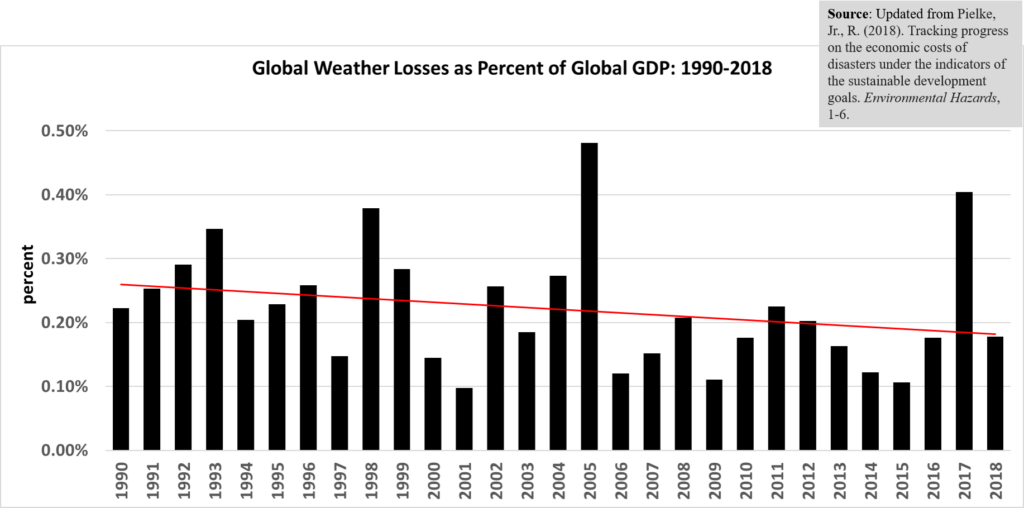- Coverage of dramatic weather events have contributed to a misunderstanding that such events are both more frequent and more damaging.
- This misunderstanding is a key factor in creating the impression we are in a ‘climate crisis’
- Once normalised for GDP growth any increase in economic losses seemingly due to climate change from extreme weather events is negated.
Claims that storms damage property and civil infrastructure, largely driven by dramatic news coverage of extreme weather events, have created the misunderstanding that these events are becoming more frequent, more damaging, and will be one of the main mechanisms of the ‘climate crisis’ that ultimately makes the world hostile to humanity. But the evidence for any of these claims is controversial.
According to many researchers, most notably Roger Pielke Jr., the approach to understanding economic losses (and natural disasters more broadly) is misconceived by other researchers, politicians and the news media, and confuses socio-economic effects for meteorological effects.
The point is made clearer by comparing the human and economic costs caused by extreme weather afflicting regions of markedly different economic development. One of the most deadly storms, Hurricane Mitch, caused over 11,000 deaths in Nicaragua and Honduras in 1998, causing over $2 billion in damages to those countries. By contrast, Hurricane Andrew, with a similar strength, landed in Florida and caused 65 deaths and over $27 billion in damages. Increased economic damage from extreme weather is thus counterintuitively underpinned by good news: wealthier people are better protected by better homes. Seemingly higher costs of extreme weather occur because people are getting wealthier, and because development enables the expansion of settlements away from urban areas, into more luxurious and scenic landscapes, which are nonetheless prone to wildfires, being dominated by trees.
When normalised for GDP growth, argues Pielke, any perceived increase in economic losses that are seemingly consistent with a climate change signal are negated.

In concert with the observation that extreme weather claims far fewer lives today, this research shows that perceptions of a worsening world, promoted by governments and scientists, is misleading. At the very least, debate on this complex question should occur, as well as an acknowledgement that the impression left with many children, that the world is becoming more dangerous, has harmed them as individuals. Extreme weather certainly occurs, and we can and should do more to prepare for and to mitigate it – and this will certainly reduce the impact of such events substantially. But the idea that reducing CO2 emissions will make a significant difference to such progress lacks any basis in reason or fact and has misled policymaking.
